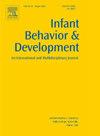Human infants’ perception and understanding of others’ actions
IF 1.9
3区 心理学
Q3 PSYCHOLOGY, DEVELOPMENTAL
引用次数: 0
Abstract
The perception and understanding of others’ actions is foundational to how we communicate and learn about the social and physical world. During the past 25 years a good deal of research has focused on how the links between the observation and execution of actions could underly infants’ understanding and prediction of others’ behaviors. In this article, we critically review the empirical evidence suggesting that the development of action understanding is related to motor experience. This research is focused on infants’ perceptions and predictions of others’ goals, but actions involve more than goals which is why infants’ coding of the movements of an action are also reviewed. One critical issue that remains unresolved in the literature is whether the processes responsible for mapping the observation and execution of actions are limited to human actions or whether they generalize to non-human actions as well. Although much of the evidence suggests a difference, we identify methodological problems and alternative interpretations that have not been fully addressed. One reason for these problems is that action understanding has been studied largely through the lens of motor development. In the last section, we suggest that this field of inquiry has become somewhat stagnant and needs to adapt a developmental systems perspective: Action understanding should be studied as a dynamical system in which its development changes as a function of not only motor experience, but also as part of a larger system of developing behaviors that interact in complex and nonlinear ways.
人类婴儿对他人行为的感知和理解
对他人行为的感知和理解是我们如何沟通和了解社会和物质世界的基础。在过去的25年里,大量的研究集中在观察和执行行为之间的联系如何成为婴儿理解和预测他人行为的基础。在这篇文章中,我们批判性地回顾了表明动作理解的发展与运动经验有关的经验证据。本研究的重点是婴儿对他人目标的感知和预测,但行动涉及的不仅仅是目标,这就是为什么婴儿对行动动作的编码也会被回顾。文献中仍未解决的一个关键问题是,负责绘制行为观察和执行的过程是否仅限于人类行为,还是也可以推广到非人类行为。尽管许多证据表明存在差异,但我们确定了尚未完全解决的方法问题和替代解释。产生这些问题的一个原因是,动作理解主要是通过运动发育的角度来研究的。在最后一节中,我们建议这一研究领域已经变得有些停滞,需要适应发展系统的观点:行动理解应该作为一个动态系统来研究,在这个动态系统中,它的发展变化不仅是运动经验的函数,而且是发展行为的更大系统的一部分,这些系统以复杂和非线性的方式相互作用。
本文章由计算机程序翻译,如有差异,请以英文原文为准。
求助全文
约1分钟内获得全文
求助全文
来源期刊

Infant Behavior & Development
PSYCHOLOGY, DEVELOPMENTAL-
CiteScore
4.10
自引率
4.80%
发文量
94
期刊介绍:
Infant Behavior & Development publishes empirical (fundamental and clinical), theoretical, methodological and review papers. Brief reports dealing with behavioral development during infancy (up to 3 years) will also be considered. Papers of an inter- and multidisciplinary nature, for example neuroscience, non-linear dynamics and modelling approaches, are particularly encouraged. Areas covered by the journal include cognitive development, emotional development, perception, perception-action coupling, motor development and socialisation.
 求助内容:
求助内容: 应助结果提醒方式:
应助结果提醒方式:


